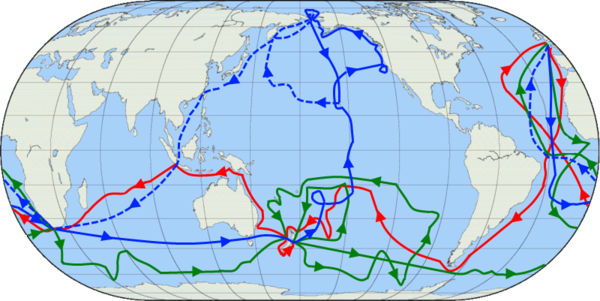“Punting the Pundits” is an Open Thread. It is a selection of editorials and opinions from around the news medium and the internet blogs. The intent is to provide a forum for your reactions and opinions, not just to the opinions presented, but to what ever you find important.
Thanks to ek hornbeck, click on the link and you can access all the past “Punting the Pundits”.
Follow us on Twitter @StarsHollowGzt
Paul Krugman: Wrong Way Nation
Gov. Rick Perry of Texas is running for president again. What are his chances? Will he once again become a punch line? I have absolutely no idea. This isn’t a horse-race column.
What I’d like to do, instead, is take advantage of Mr. Perry’s ambitions to talk about one of my favorite subjects: interregional differences in economic and population growth.
You see, while Mr. Perry’s hard-line stances and religiosity may be selling points for the Republican Party’s base, his national appeal, if any, will have to rest on claims that he knows how to create prosperity. And it’s true that Texas has had faster job growth than the rest of the country. So have other Sunbelt states with conservative governments. The question, however, is why.
Robert Kuttner: Trade Deals from Hell
The latest reports from Europe indicate that the continent is slipping back into recession. The U.S. is doing only slightly better, with positive economic growth but scant progress on the jobs front, and no growth in the earnings of the vast majority of Americans.
Meanwhile, global climate change continues to worsen, producing unprecedented policy conundrums of how to reconcile the very survival of the planet with improved living standards for the world’s impoverished billions and for most Americans, whose real incomes have declined since the year 2000.
Amid all of these serious challenges, what common strategies are top U.S. and European leaders pursuing? Why, a new trade and investment deal modeled on NAFTA, to make it harder for governments to regulate capitalism.
Europe’s economic depression has now lasted longer than the Great Depression of the 1930s. Meanwhile, America’s “Great Recession” also drags on thanks to cutbacks in government spending since the stimulus.
Europe’s leaders somehow were convinced that austerity – “deficit reduction” through cutbacks in government – would somehow lead them out of their economic doldrums. They believed that taking money out of the economy would help the economy. The result has been terrible. The Washington Post’s Wonkblog calls Europe’s austerity-lengthened depression “one of the biggest catastrophes in economic history.”
To top it off, Europe’s governments are learning that cutting back on spending not only worsens the economic picture, causing terrible unemployment, poverty and human misery, but the worsened economic picture means less revenue coming in, thereby increasing deficits instead of lowering deficits. In other words, austerity cutbacks to fight deficits have instead made deficits worse and hurt people.
Ralph Nader: Corporations Spy on Nonprofits With Impunity
Here’s a dirty little secret you won’t see in the daily papers: Corporations conduct espionage against U.S. nonprofit organizations without fear of being brought to justice.
Yes, that means using a great array of spycraft and snoopery, including planned electronic surveillance, wiretapping, information warfare, infiltration, dumpster diving and so much more.
The evidence abounds.
For example, six years ago, based on extensive documentary evidence, James Ridgeway reported in Mother Jones on a major corporate espionage scheme by Dow Chemical focused on Greenpeace and other environmental and food activists.
Greenpeace was running a potent campaign against Dow’s use of chlorine to manufacture paper and plastics. Dow grew worried and eventually desperate.
David Mitchell: Trust us, say the online giants – we won’t make you think for yourself
Are eBay and Facebook trying to protect users from their own stupidity with their nannying tactics? It’s more sinister than that
We’ve got it covered… Facebook founder Mark Zuckerberg in California, January 2012. Photograph: Josh Edelson/AFP/Getty Images
Here’s a tip for the dynamic go-getter on a time and money budget who’s determined to live the luxurious dream: when eating your lunchtime Pot Noodle, try putting on a CD of Handel’s Music for the Royal Fireworks. It’ll make everything seem so posh. Just close your eyes and each chemical forkful will be transformed to caviar as it crosses your tongue. Or, if not quite caviar, maybe a high-end ready meal. Or some toast made from expensive bread. At the very least, it’ll elevate your perception of the quality of any jam you happen to be eating. How much probably depends on you, but on average it’s 5%.
This is one of the key findings of a survey published last week: that classical music isn’t just good for discouraging teens from loitering around tube stations – it also makes shoppers overrate a product’s quality by about a twentieth. The purpose of the study was to find out how our purchasing choices are affected by sounds.




 YAATS (Yet Another Airport Terminal Station) has opened in Dallas for the “orange line” in the Dallas Area Regional Transit light rail system. This is not at the regional airport Love Field, even though the Orange Line runs directly past Love Field, but at the Dallas / Fort Worth International airport, following completion of a five-mile extension to the western end of the Orange line.
YAATS (Yet Another Airport Terminal Station) has opened in Dallas for the “orange line” in the Dallas Area Regional Transit light rail system. This is not at the regional airport Love Field, even though the Orange Line runs directly past Love Field, but at the Dallas / Fort Worth International airport, following completion of a five-mile extension to the western end of the Orange line.
Recent Comments